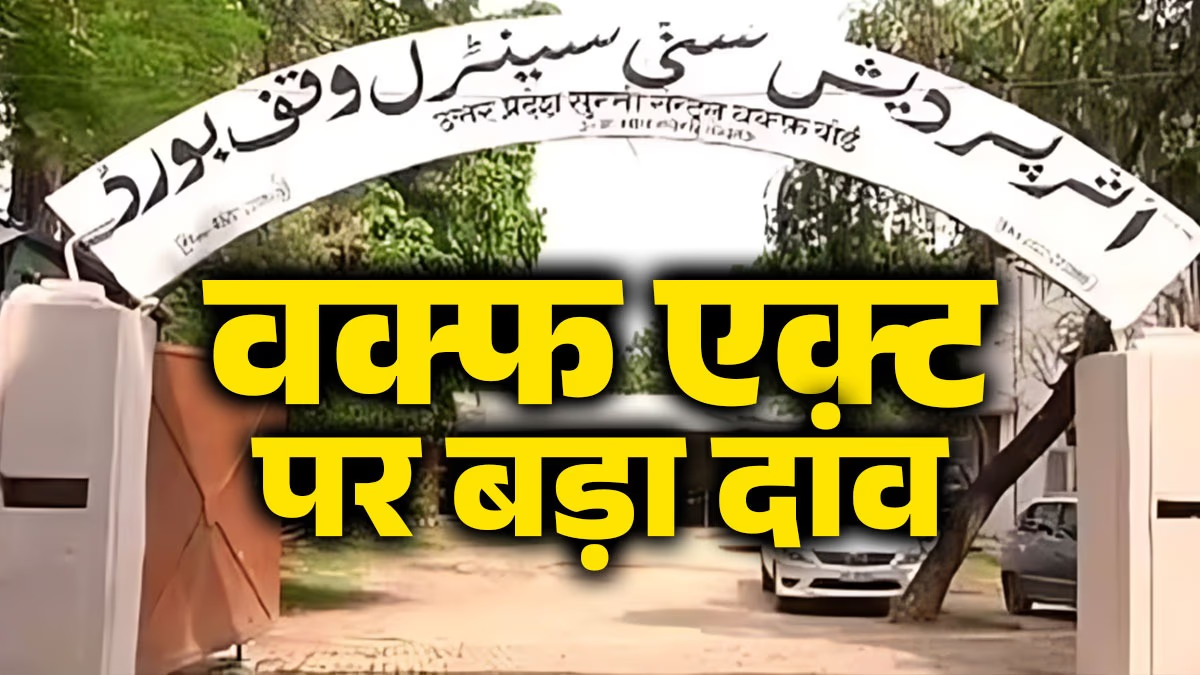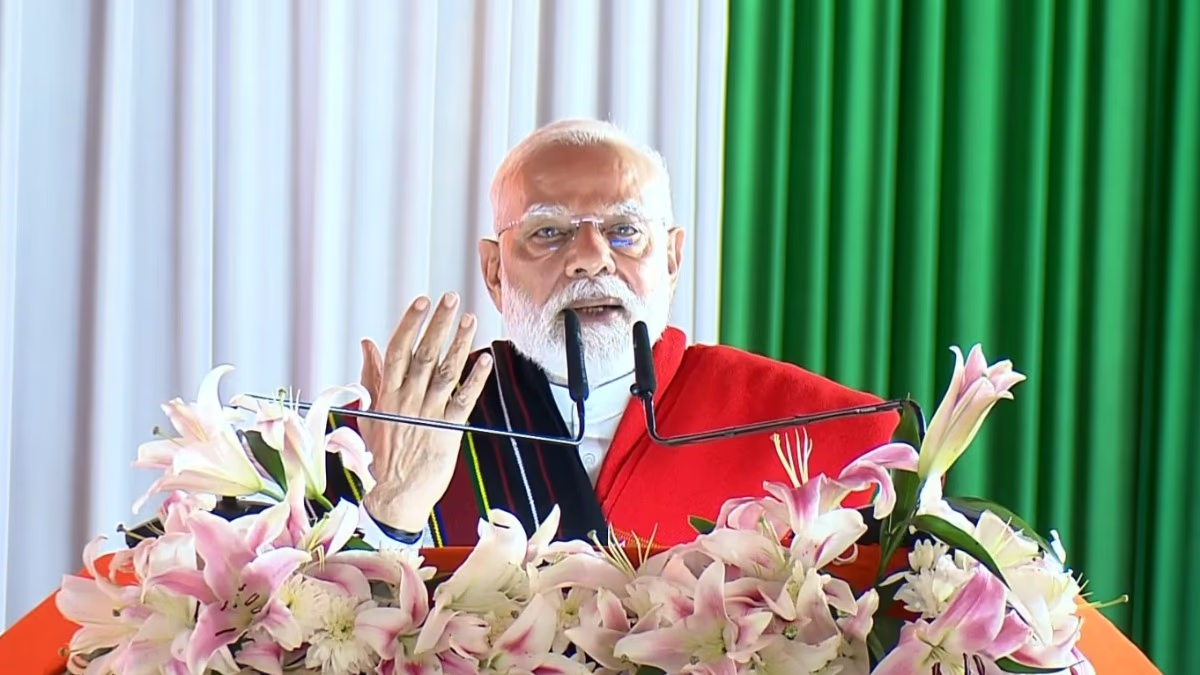The central Modi government is about to make significant amendments to the Waqf Act. A bill proposing these amendments is under consideration in this session of Parliament. Prior to this, on Friday, the cabinet approved a proposal for 40 amendments to the Waqf Act. Once the amendment bill is passed in Parliament, the uncontrolled powers of the Waqf Board will diminish. The board will no longer be able to declare any property as Waqf without verification. What is the Waqf Act? How much land does the Waqf Board hold? What is the government's plan? What are the arguments against it?
Find answers to all these questions...
It is noteworthy that the powers of the Waqf Board were increased during the UPA government in 2013. Common Muslims, poor Muslim women, children of divorced Muslim women, Shia, and Bohra communities have long been demanding changes in the law. They claim there is no place for ordinary Muslims in the Waqf, only powerful people are in control. There are questions about the revenue; the amount generated is not allowed to be assessed. When revenue is accounted for, it will be utilized for the benefit of Muslims. At present, 30 Waqf Boards exist in the country. The estimated annual revenue from all Waqf properties is around 200 crore.
Key Facts About the Waqf Board
- The first Waqf Act was passed in 1954. The first amendment came in 1995, followed by a second amendment in 2013. - No other country in the world grants such extensive powers to the Waqf Board. Not even in Saudi Arabia or Oman. - Once a land is declared Waqf property, it cannot be reverted. Powerful individuals have taken control of the Waqf Board. - India has the highest amount of Waqf property globally, but the revenue generated is not significant—only around 200 crore. - Even the central government, state governments, or courts cannot intervene in Waqf matters. Apart from those controlling the Waqf Board, others are against this law. - The Sachar Committee also recommended transparency in the Waqf Board. Only Muslims can utilize Waqf property.
1. What is the Modi Government's Plan?
On Friday, the cabinet approved around 40 amendments to the Waqf Act. The Modi government aims to curb the Waqf Board's power to declare any property as 'Waqf property.' The amendments intend to restrict the Waqf Board's authority to claim properties as Waqf. All claims by the Waqf Board will undergo mandatory verification. Once the amendment bill passes, significant changes will occur in the management and transfer of Waqf properties. According to sources, reasons for the amendments have been cited, including recommendations by the Sachar Committee and the Joint Parliamentary Committee headed by K. Rahman Khan.
2. What Will the Law Changes Do?
Currently, neither the state nor the central government can intervene in Waqf properties. After the amendments, the Waqf Board will have to register its properties with the District Magistrate's office for evaluation. Revenue checks will be possible. The new bill will ensure only Muslims can create Waqf properties. The structure of the Board will be altered to ensure women's participation. Female members will be included in state Waqf Boards and the Central Council. Currently, there are no women members. Places without a Waqf Board can approach a tribunal, which was not available earlier.
Disputed or old Waqf properties will undergo new verification. The new changes will apply to properties claimed by either the Waqf Board or individuals. All claims made by the Waqf Board must be mandatorily and transparently verified. Sections 19 and 14 of the Waqf Act will be modified. This could change the structure of the Central Waqf Council and State Waqf Boards. Decisions by the Waqf Board can now be appealed in the High Court, a provision that did not exist before.
3. When Were Additional Powers Given to the Waqf Board?
In 2013, the Congress-led UPA government introduced amendments to the 1995 basic Waqf Act, granting more powers to the Waqf Boards. These amendments gave the boards unlimited powers to claim property, which cannot be challenged in any court. In simple terms, the Waqf Board has unlimited powers to claim properties in the name of donations, preventing the claimant from seeking justice through the judiciary. No other religious institution in the country has such powers. According to Section 3 of the Waqf Act, 1995, if the Waqf 'believes' that any land belongs to a Muslim, it becomes Waqf property. The Waqf does not need to provide any evidence for their claim on the land.
Currently, the board has the authority to declare any property as Waqf property. The rationale is that these properties will benefit needy Muslims. However, it has been observed that influential individuals use these properties for their own benefit. There have been disputes over forcibly declaring properties as Waqf. Waqf properties have special status above any trust, etc. The Act was introduced to regulate 'Auqaf,' properties donated and designated as Waqf. A 'waqif,' the person who dedicates the property for religious, educational, or charitable purposes under Muslim Law, donates these properties.
4. What Irregularities Have Been Reported?
The government found that state Waqf Boards have extensive powers to claim properties, leading to delays in surveys for such properties in most states. To prevent misuse of property, the government is considering involving District Magistrates in monitoring Waqf properties. Appeals against the Waqf Board's decisions can only be made in court, which has no time frame for decisions. The court's decision is final.
If the board claims a property, it can be challenging to prove otherwise. Section 85 of the Waqf Act says these decisions cannot be challenged in the High Court or the Supreme Court. Neither state nor central governments nor courts have been able to review Waqf properties. There is a demand for a committee to review the revenue, ensuring transparency in the Waqf. Waqf properties should only benefit Muslims. Ordinary Muslims claim that the Waqf Board has been captured by a sort of mafia. For a divorced woman with children, there is no provision for her to see her child.
Due to previous amendments, the Waqf Board has been acting like a land mafia, grabbing properties. From private properties to government land, temple lands to gurdwara lands, the Waqf Board's actions have been controversial.
5. How Much Property Does the Waqf Board Hold?
Initially, Waqf had around 52,000 properties nationwide. By 2009, 3 lakh registered Waqf properties covered 4 lakh acres. Currently, Waqf properties widen to over 8 lakh 72 thousand 292 acres. In just 13 years, Waqf land has doubled, including 16,713 movable properties. State Waqf Boards manage and control these properties, listed on the Waqf Assets Management System of India (WAMSI) portal. Additionally, around 329,995 Waqf properties have been GIS-mapped. The estimated value of Waqf Board properties is 1.2 lakh crore rupees. The Waqf Board becomes the third-largest landowner in the country after the armed forces and Indian Railways. Uttar Pradesh has the most Waqf properties. The Sunni Board in UP holds 2 lakh 10 thousand 239 properties, while the Shia Board holds 15 thousand 386 properties. Every year, thousands donate properties to the board as Waqf, increasing its wealth.
6. What is a Waqf Board?
The Waqf Act is legislation for managing and regulating the properties and religious institutions of the Muslim community. Its main objective is to ensure the proper conservation and management of Waqf properties for religious and charitable purposes. 'Waqf' is an Arabic word meaning 'to stop' or 'to dedicate.' In Islam, Waqf property is a permanent charitable trust, donated for uses such as religious purposes, aiding the poor, education, etc. Each state has a Waqf Board to manage these properties. The board registers, conserves, and manages Waqf properties.
All Waqf properties must be registered under the Waqf Act. Registration is done with the respective State Waqf Board. The board supervises, repairs, and develops Waqf properties to ensure they are used for religious and charitable purposes. The Waqf Board has the authority to inspect and control Waqf properties. It also appoints and reviews the functions of 'mutawalli,' managers of Waqf properties. A special court is established to resolve disputes related to Waqf properties, which settle all such issues.
The Waqf Act, 1954, was later amended and passed as the Waqf Act, 1995, making the management and administration of Waqf properties clearer and more effective. Further changes were made in 2013. The board's purpose is to protect and manage Waqf properties efficiently, ensuring their use for religious and charitable purposes and the proper and swift resolution of property disputes.
7. How Does the Waqf Board Operate?
The Waqf Board maintains and ensures that properties are used for charitable purposes. Various local and larger bodies are created, known as Waqf Boards, to manage these properties. Nearly every state has Sunni and Shia Waqf Boards. They take care of properties and use the income generated for poor or needy people, maintain mosques or other religious institutions, provide education, and fund other religious activities. The central Waqf Council coordinates with the state boards. According to the Waqf Assets Management System of India, there are 30 Waqf Boards nationwide, mostly headquartered in capital cities.
The Waqf Act was passed during Nehru's government in 1954, centralizing the property management. Amendments have been made multiple times. The board includes a Survey Commissioner to record properties, along with Muslim MLAs, MPs, IAS officers, town planners, advocates, and intellectuals. State governors decide who can participate in the Waqf Tribunal, typically preferring Muslim members.
8. What Accusations Are Facing the Waqf Board?
The Muslim community itself questions why the government is not amending the Waqf Board laws. They claim only powerful individuals are part of the board, and corruption allegations are rife. People are demanding arrangements for ensuring transparency. Former UP Minister and BJP leader Mohsin Raza states that the 1995 law has been misused by the Waqf Board, granting it unaccountable powers, which have been exploited. If any property is incorrectly registered as Waqf, how can it be removed? The members of the Waqf Board are not judges. Decisions should be made by authorities. The amendment will ensure complaints are addressed by officials who will guide the Waqf Board’s actions. Typically, people seek justice but do not get it due to the board's unaccountable powers. Modi's government's decision is welcomed, benefiting many people.
Mohsin Raza adds that Waqf is intended for charity for impoverished and downtrodden Muslims. The Waqf Board, however, states they have neither money nor income despite holding properties worth crores. This amendment addresses this issue. Often properties get registered as Waqf based on a survey, causing descendants to struggle to claim their ancestral property. The Waqf Board continues to misuse its powers, causing issues for people, leading to the amendment for public interest.
BJP leader Ajay Alok mentions the reform demand is not new; it has existed for 30-40 years. Those raising and affected by this issue are Muslims. There is an essential need for Waqf Board reforms, and hopes that political parties like SP, Congress, and TMC will support the bill.
9. What Are the Arguments Against It?
Hyderabad MP and AIMIM chief Asaduddin Owaisi argue that the amendments aim to confiscate Waqf properties, infringing on religious freedom. The RSS always intended to seize Waqf properties. AIMPLB member Maulana Khalid Rashid Farangi Mahli states that their ancestors donated large portions of their property under Islamic law for charity purposes. The Waqf Act ensures properties are used solely for the intended charitable purposes.
Maulana Farangi asserts that once a property becomes Waqf, it cannot be sold or transferred. The Waqf Act was last amended in 1995, followed by updates in 2013. He believes no further amendments are necessary. If the government sees a need, stakeholders should first be consulted. It should be noted that 60%-70% of Waqf properties include mosques, shrines, and cemeteries.
RJD spokesperson Mrityunjay Tiwari claims the government's attention is misplaced, using these methods to avoid real issues by targeting a specific religion. JDU and TDP, BJP allies, need to clarify these actions. The country should follow its laws and rules, and the opposition remains strong.
Historian and Muslim scholar S Irfan Habib questions the government's intention, suspecting motives to grab Waqf lands. If beneficial, laws should be introduced carefully, ensuring women are included. The 1954 Waqf Board was created with good intentions, with lands donated for educational, religious, or other welfare works. However, corruption has also plagued Waqf properties.
Maulana Sufi Nizami states their elders donated private property to Waqf for the benefit of Muslims. The Waqf Board was formed for proper management. Nizami argues the government should empower the Waqf Board, retrieve properties occupied unlawfully, or ensure rents are paid to the Board. Laws can resolve issues when implemented correctly. If the government has complaints about improper sales or purchases, legal actions should be taken, which Muslims will not oppose.
10. When Will the Amendment Bill Be Introduced in the House?
Sources indicate the Waqf Act amendment bill might be introduced in Parliament this week. The government potentially aims to pass the bill by August 5th. The NDA government considers August 5th significant, having presented the Jammu and Kashmir Article 370 removal bill and conducted the Ayodhya Ram Temple land worship on August 5th in previous years.




